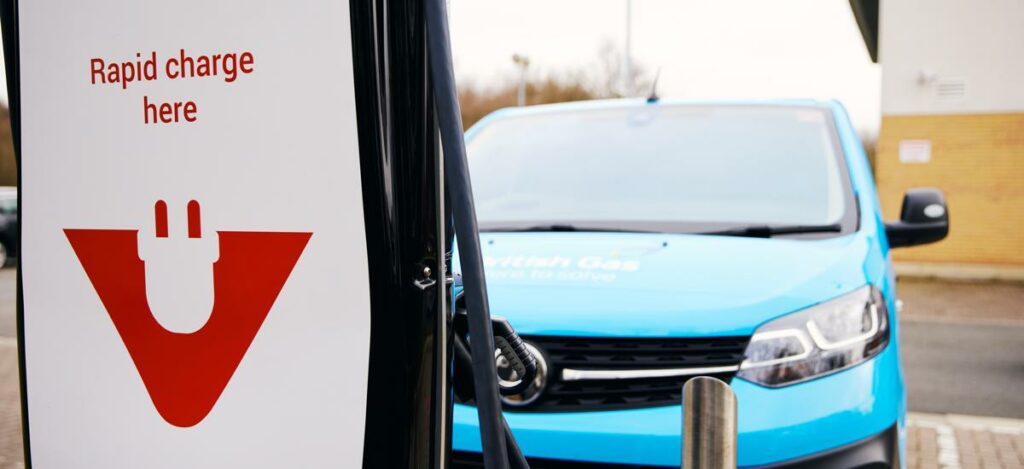Nearly half of businesses are planning to install electric vehicle (EV) charging points on their premises over the next year according to a new survey.
Commissioned by Centrica Business Solutions, it found that companies are planning to invest £15.8 billion in EVs and on-site charging points over the twelve months to March 2022. This is a 50% increase year-on-year from the £10.5 billion invested by companies between April 2020 and March 2021.
Of those polled, 46% are planning to install charging points, although 37% have already installed the infrastructure. Additionally, 30% have already invested in on-site generation technologies to charge their EV fleets, such as solar panels. Almost half are planning to invest in such generation in the future.
This follows 40% of companies saying they had increased the number of EVs in their fleets during the last year. Of these, 58% said the biggest driver was an effort to meet corporate sustainability targets, while 51% said it was to reduce operational disruption caused by low and zero-emission zones and 37% were attracted by the lower maintenance and whole-life costs of EVs.
Greg McKenna, managing director of Centrica Business Solutions, said it was encouraging to see investment in EVs was still a priority “despite the disruption of the past year”.
“Now that 2030 is set in stone as the end of new petrol & diesel sales we need to ensure three things to help get us there, sufficient electric vehicles to meet demand, reliable charging infrastructure that’s available to all and a flexible energy system that can deliver green power where it’s needed.”
Barriers to the adoption of EVs remain, and 43% of businesses said they hadn’t increased their EV numbers at all while 10% actually decreased their EV fleet size. The biggest barrier remains range anxiety, with 34% of companies citing it as a chief concern, putting it just ahead of the need to prioritise spending elsewhere during the pandemic, which 32% of companies cited.
But 67% of companies said they were well prepared to operate fully electric by 2030, when the government’s ban on the sale of new petrol and diesel cars is set to come in.
“As we accelerate towards our net zero future, I’m delighted to see UK firms at the forefront of the electric vehicle revolution,” said Rachel Maclean, transport minister.
“With British businesses set to increase their investment in electric vehicles by 50%, the message is clear – the future is electric. With generous government grants and tax incentives which could save drivers over £2,000 a year, there has never been a better or more exciting time to make the switch.”
Centrica Business Solutions launched a Fleet Charging Management System in March to ease the transition to electric for fleets. The app acts as a virtual fuel card, meaning a driver is automatically reimbursed for charging costs, and also includes tariff optimisation.
The company’s UK supplier British Gas is using the app for its fleet. Centrica has committed to electrifying its 12,000-strong operational fleet by 2025, with British Gas ordering an additional 2,000 Vivaro-e vans from Vauxhall earlier this year, the largest EV order for a commercial fleet in the UK ever.






